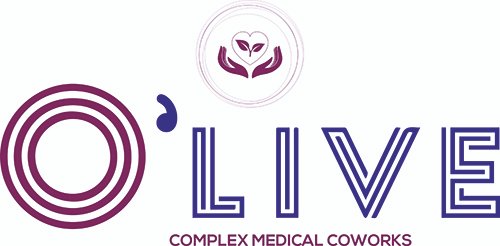Multidisciplinary Team Approach
- Collaborative Care:
- Our multidisciplinary team includes oncologists, surgeons, radiologists, pathologists, genetic counselors, and other specialists. This team collaborates to develop and implement personalized treatment plans for each patient.
- Tumor Boards:
- Regular tumor board meetings bring together specialists to discuss complex cases and determine the best course of action for each patient.
Advanced Diagnostic and Staging Tools
- Imaging Techniques:
- We use advanced imaging techniques such as PET-CT, MRI, and molecular imaging to accurately diagnose and stage cancer.
- Biomarker Testing:
- Biomarker and molecular testing identify specific genetic mutations and markers that can influence treatment choices.
- Liquid Biopsies:
- Cutting-edge liquid biopsy technology allows for non-invasive detection of cancer cells and DNA fragments in the blood.
Personalized Treatment Plans
- Precision Medicine:
- Treatments are tailored based on the genetic profile of the patient’s tumor, ensuring a personalized approach.
- Integrated Therapies:
- Combining surgery, radiation, chemotherapy, targeted therapy, and immunotherapy to maximize treatment effectiveness.
- Clinical Trials:
- Offering patients access to innovative treatments and drugs through participation in clinical trials.
Patient-Centered Care
- Holistic Support:
- We offer a range of supportive services including nutritional counseling, psychological support, pain management, and palliative care.
- Patient Education:
- Informing patients about their diagnosis, treatment options, potential side effects, and expected outcomes to empower them to make informed decisions.
- Care Coordination:
- Dedicated care coordinators assist patients in navigating the healthcare system, scheduling appointments, and accessing resources.
Advanced Treatment Modalities
- Targeted Therapy:
- Using drugs that specifically target cancer cells based on genetic mutations and biomarkers.
- Immunotherapy:
- Enhancing the body’s immune system to recognize and attack cancer cells.
- Radiation Therapy:
- Utilizing advanced techniques such as stereotactic radiosurgery (SRS) and intensity-modulated radiation therapy (IMRT) for precise targeting of tumors.
- Minimally Invasive Surgery:
- Employing laparoscopic and robotic-assisted surgeries to reduce recovery times and improve outcomes.
Supportive and Palliative Care
- Symptom Management:
- Addressing symptoms such as pain, nausea, fatigue, and emotional distress to improve the quality of life.
- Rehabilitation Services:
- Physical therapy, occupational therapy, and speech therapy to help patients regain function and independence.
- Survivorship Programs:
- Long-term follow-up care and support for cancer survivors, including monitoring for recurrence and managing late effects of treatment.
Patient and Family Support
- Counseling Services:
- Providing psychological support and counseling for patients and their families to cope with the emotional challenges of cancer.
- Support Groups:
- Facilitating support groups where patients can share experiences and connect with others facing similar challenges.
- Educational Workshops:
- Offering workshops on topics such as nutrition, stress management, and coping strategies.
Innovative Research and Continuous Improvement
- Cutting-Edge Research:
- Engaging in clinical research to explore new treatment options, improve existing therapies, and understand the biology of different cancers.
- Continuous Education:
- Ensuring that our medical staff remains at the forefront of cancer care through ongoing education and training.
- Quality Improvement Programs:
- Implementing quality improvement initiatives to enhance patient outcomes and streamline care processes.
Advanced Treatment Modalities
- Targeted Therapy:
- Using drugs that specifically target cancer cells based on genetic mutations and biomarkers.
- Immunotherapy:
- Enhancing the body’s immune system to recognize and attack cancer cells.
- Radiation Therapy:
- Utilizing advanced techniques such as stereotactic radiosurgery (SRS) and intensity-modulated radiation therapy (IMRT) for precise targeting of tumors.
- Minimally Invasive Surgery:
- Employing laparoscopic and robotic-assisted surgeries to reduce recovery times and improve outcomes.
Supportive and Palliative Care
- Symptom Management:
- Addressing symptoms such as pain, nausea, fatigue, and emotional distress to improve the quality of life.
- Rehabilitation Services:
- Physical therapy, occupational therapy, and speech therapy to help patients regain function and independence.
- Survivorship Programs:
- Long-term follow-up care and support for cancer survivors, including monitoring for recurrence and managing late effects of treatment.
Technology Integration
- Electronic Health Records (EHR):
- Utilizing advanced EHR systems for seamless information sharing and coordination of care.
- Telemedicine:
- Providing remote consultations and follow-up care through telemedicine to improve accessibility and convenience for patients.
- Patient Portals:
- Offering secure online portals where patients can access their medical records, communicate with healthcare providers, and manage appointments.
Community Outreach and Education
- Awareness Campaigns:
- Conducting community outreach programs to raise awareness about cancer prevention, early detection, and treatment options.
- Screening Programs:
- Offering free or low-cost cancer screening programs to detect cancer early in underserved populations.
- Educational Seminars:
- Hosting educational seminars and workshops for the community to promote understanding and engagement in cancer care.







